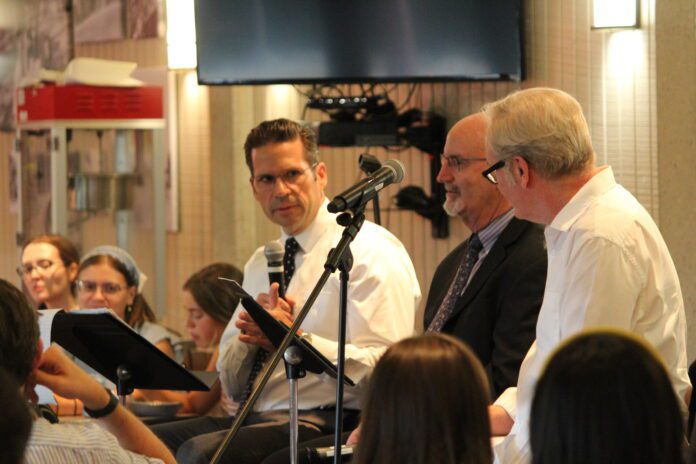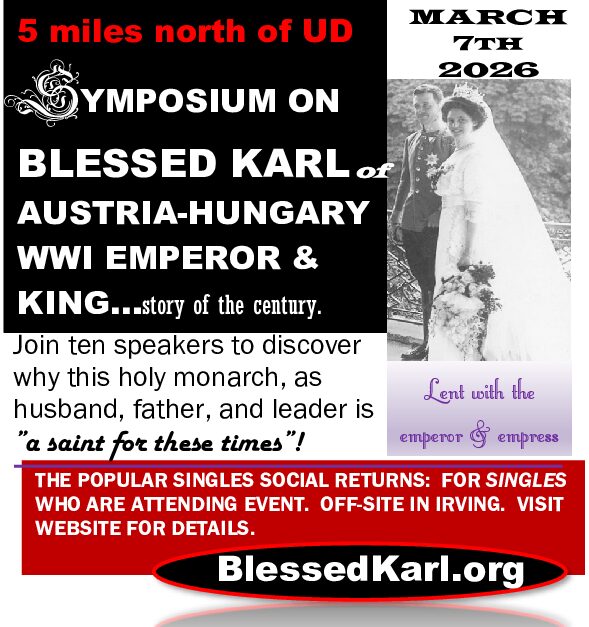
Disclaimer:
All articles published within this section of The Cor Chronicle are the opinions of the respective authors and do not necessarily reflect the opinions of The Cor Chronicle.
A few weeks ago, a friend of mine posed an interesting question to me at dinner. He more or less asked, “Why should we read Aristotle when Aquinas improves on his ideas of God down the line?” The consensus more or less was that he was wrong, but I still found merit in what he was saying. After all, why does the UD Core cover ancient texts when later thinkers come along and refine their thoughts?
In principle, this is a completely valid question. Students are essentially studying the roots of philosophy and literature when they begin their journey through the Core. The curriculum has students navigate through a chronology of organized thought, starting with the blueprints set down in the “Iliad” and ending with the rich characterization seen in “A Portrait of the Artist as a Young Man.”
Historically speaking, there are benefits to the humanities offerings of past civilizations. But in an academic vacuum, one could argue that these sources are outdated, especially when placed next to millennia’s worth of proceeding stories and syllogisms. Why read Aristotle, who was just coming around to the possibility of a divine relationship between a single Creator and creation itself, when Aquinas has thirteen centuries of Church tradition to incorporate into his theology?
Unfortunately, a handful of problems arise from this approach to creating an academic canon. The first is that when we apply a modern perspective to thinkers like Homer and Aristotle, we fail to experience the text as it was originally intended. We see a logical and moral progression that separates us from antiquity; this diminishes our understanding of ancient works’ merit in their own time. By this mode of thinking, Aquinas becomes unimportant once enough time passes and enough new theology renders him “outdated.”
Classical texts remain important because of their history. If we had no knowledge of Aristotle’s early musings on the divine, Aquinas’ writings would not have developed in the same way. One may say that the “Odyssey” is not a consequential piece of narrative when placed against “Robinson Crusoe” or the mind-bending novels of the early twentieth century, but without Homer’s poem, the motifs and style found in modern literature could not exist.
Therefore, academic studies are like an unending musical cadence; primitive works establish the paradigms of a particular discipline (analogous to a musical key), while subsequent works develop these paradigms with inversions in style, context and message.
UD’s Core is beautiful because it is boundless and has the potential to chronicle human thought in a way that other colleges cannot emulate. A lack of resolution bodes poorly for the tactful musician, but for the academic musician, a new melody is always on the horizon.
UD prioritizes the connection between its core disciplines. Literature and philosophy work in tandem, since it is through persuasion that authors make a sound appeal. Once students see the connection between primitive philosophical, theological and literary paradigms, they can begin to make their own inferences about each respective subject, as well as the sum that emerges when we view them as one whole.
Higher education strives to make these inferences, and from them come the next generation of foundational texts. Our professors’ job is to preserve tradition to allow for its expansion.
Early texts are not unrefined, but instead relegated to the time they were written. The “Nicomachean Ethics” may not reinvent the wheel like later ethical treatises (particularly in a Catholic context), but in order to understand the subject matter fully, we must recognize the importance of this chronology – the never-ending cadence that constitutes the need for education.
In short, good company at dinner makes for good academic discourse.
